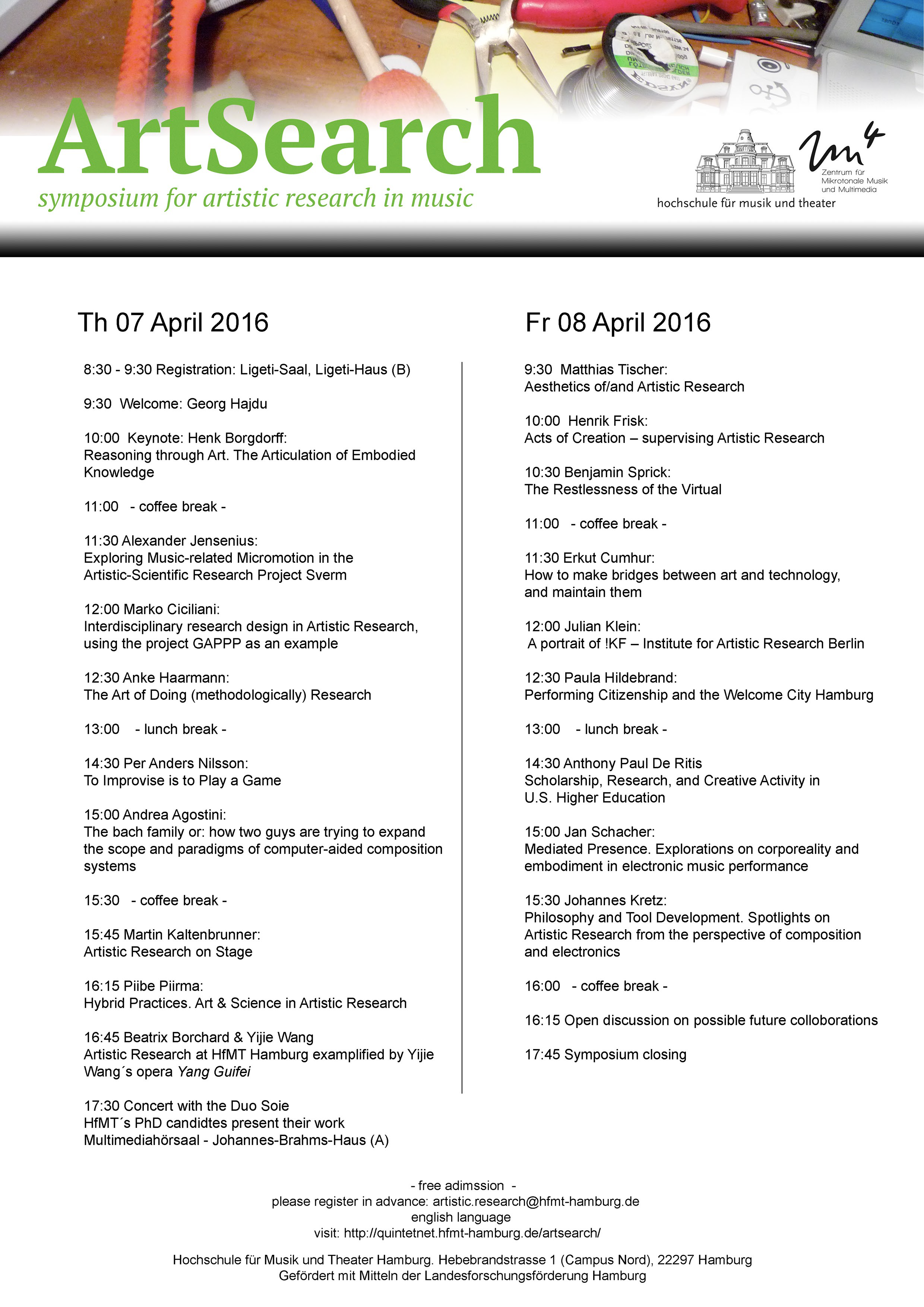We certainly, here at Hamburg University of Music and Drama, did our share of reading and reflecting on the subject, but what we felt as somewhat lacking was a dimension of “real-life” contact and a forum for the exchange of ideas with leading experts in the field. Conceptualized and led by Prof. Dr. Georg Hajdu, in April 2016 a two-day symposium on artistic research was organized, dubbed “ArtSearch“. Together with Dr. Jacob Sello, the author was fortunate enough to help with the organization of this successful event. The symposium was hosted by the Hamburg University of Music and Drama and generously financed by Hamburg Behörde für Wissenschaft, Forschung und Gleichstellung. Accompanying the symposium was a concert with the Duo Soie, where pieces depicting the various artistic research projects currently being explored by our Dr. sc. mus. candidates were presented.
While ideas of artistic research are still fairly novel within the context of German universities, similar approaches have been successfully pursued and practiced in various neighboring countries for years. By inviting some of the most internationally renowned speakers we sought to provide an open platform for a rich and constructive exchange of ideas, insights and results born in practice. Answering our call were the esteemed authors, composers, researchers and teachers from more than ten countries and we were awarded with lively discussions on the theoretical aspects, as well as critical reflections on the methodologies present in artistic research, especially focusing on music and multimedia art. After a welcome speech by Prof. Dr. Georg Hajdu and a keynote address by Prof. Dr. Henk Borgdorff, the symposium continued with a mix of lectures dealing with the theories and methodologies of artistic research, and the presentations of various artistic research projects ranging from new musical interfaces and notations, all the way to gamifications and the many steps in between. In his keynote, titled “Reasoning through Art. The Articulation of Embodied Knowledge”, as well as in the discussion he moderated at the conclusion of the event, Prof. Borgdorff brought up a positive understanding of research in and through the arts, touched upon its epistemology and methodology, and addressed the form and relevance of its outcomes. He also gave an overview of the work done by the Society for Artistic Research, its Journal for Artistic Research and the associated Research Catalogue.
Researchers from different countries presented some of the current projects in their respective universities, and also shared their experiences in dealing with the ebbs and flows in the broad understanding of what artistic research means and is. We were all also given some helpful tips in navigating the sometimes rough seas of academia and bureaucracy and, at the end of the event, quite a few possible collaboration opportunities seemed to have arisen.

As with all things in life, no one can truly know what exactly the future holds, but we dare claim that the field of artistic research is making strong strides towards a universal acceptance from the world-wide scientific community and is slowly but surely rising to become on a par with scientific and the research in the humanities.